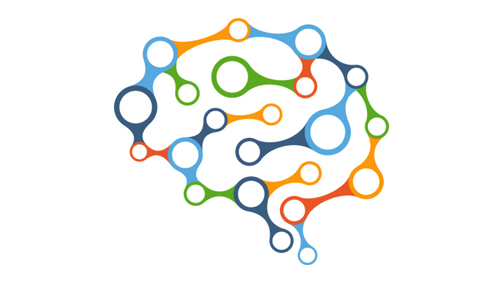What Are Executive Functions?
According to Dr. Russell Barkley, one of the leading experts in the field of ADHD, executive functions are the bases for human self-regulation.
Someone impacted by ADHD has difficulties with each level of the executive functions (depending on the severity of the ADHD).
Self-regulation is the ability to choose goals, and to select, enact, and sustain actions across time toward those goals. Dr. Barkley developed a model, to help explain the different levels of executive functions – see the model below.

Dr. Barkley’s Model
Level IV - STRATEGIC COOPERATIVE ABILITIES
Underlies cooperative ventures, division of labor, the formation of communities and governments.
Level III - TACTICAL RECIPROCAL ABILITIES
Underlies ethics, social skills, and etiquette. The basis for legal contracts.
Level II - INSTRUMENTAL SELF-DIRECTED ABILITIES
Level I - METHODICAL SELF-RELIANT ABILITIES
Executive Functions In The REAL WORLD
When you walk into a grocery store and begin to put unnecessary items into your cart, you face a situation of overspending or indulging in unhealthy eating habits, buying things you might not need or just grabbing things that stand out to you.
To help you deal with this temptation in a more successful way you might:
- make a grocery list before going to the grocery store (self-awareness)
- not allow yourself to browse the aisles to get the things on your list (self-restraint)
- engage yourself in a rational conversation about why you need to save money, why you need to eat healthier or any other reason you may have (motivation)
- visualize an image of your goal, what you will be doing with the money you are trying to save (visual imagery)
- find yourself thinking of other ways to deal with the temptation which is specifically helpful for you (problem-solving)
All of the self-directed actions you are using in the grocery store you are using because you want to achieve a goal.
Unfortunately, someone with ADHD who is not being treated adequately will find it difficult to act in the best interest of oneself not because you do not care, but because the executive functions required to make such decisions have not developed.


What Do Executive Functions Have To Do With ADHD?
ADHD is a neurobiological disorder of the brain which includes weakness in executive functioning. Neurobiological means that part of the cause of ADHD is genetic or biological. Therefore, it is something that affects the individual’s brain, whether structurally or chemically. These biological functions are connected to executive functions. By knowing which executive functions need improvement, the person with ADHD can identify the skills and strategies to be successful.
Executive Functions and Treatment
ADHD involves deficits in the major executive functions, which are shown in the model above. These deficits are due to delays in the development of mental abilities.
It DOES NOT Mean The Executive Functions Cannot Develop
As ADHD Coaches, we work with the individual on identifying which executive functions to focus on, as well as each level of the executive functions to strengthen the mental capabilities and help with the self-regulation needed to reach the goal of the individual.

How Does ADHD & Executive Functions Deficits Impact My Life?
Academic -Individuals who have ADHD and executive function deficits will have various difficulties in their academic life, which might include having trouble remembering class lectures, forgetting to turn in assignments, having an outburst in class due to frustration and inability to turn in an assigned task on time.
Professional– The executive deficits include difficulties following directions, getting to work on time, turning in a task promptly, leaving a job due to boredom without having another job secure and getting fired.
Relationships– Dr. Barkley found, individuals with ADHD and executive function deficits have difficulties with following through on commitments, promise-keeping, have trouble listening, will say what first comes to mind without considering how it will affect his/her partner.
Parent- A parent who has a child with ADHD can expect to have a child with executive functions deficits, which will cause difficulties for the parents, which can include challenges in disciplining, understanding the disorder and how it can impact the child and also finding the adequate treatment for the child. Because parenting a child with ADHD can be difficult it will require the parents to develop unique skills to help the child develop the executive functions and awareness of the deficits. There may also need to be some adjustment in parenting styles and parent/child relationship dynamics.
Self-Care- Not taking medication on time, engaging in risky behavior, participating in unhealthy lifestyle choices such as not getting enough sleep, self-medication, less likely to participate in preventative care such as dental and medical check-ups (Barkley, 2012).
It is essential to understand each aspect of life outlined here also has a social component, which the individual who has ADHD and executive function deficits will struggle with depending on the severity of the deficits such as not picking up on social cues like waiting your turn to speak, interrupting and the inability to self-regulate which can cause frustration and anger for the individual causing outburst.
